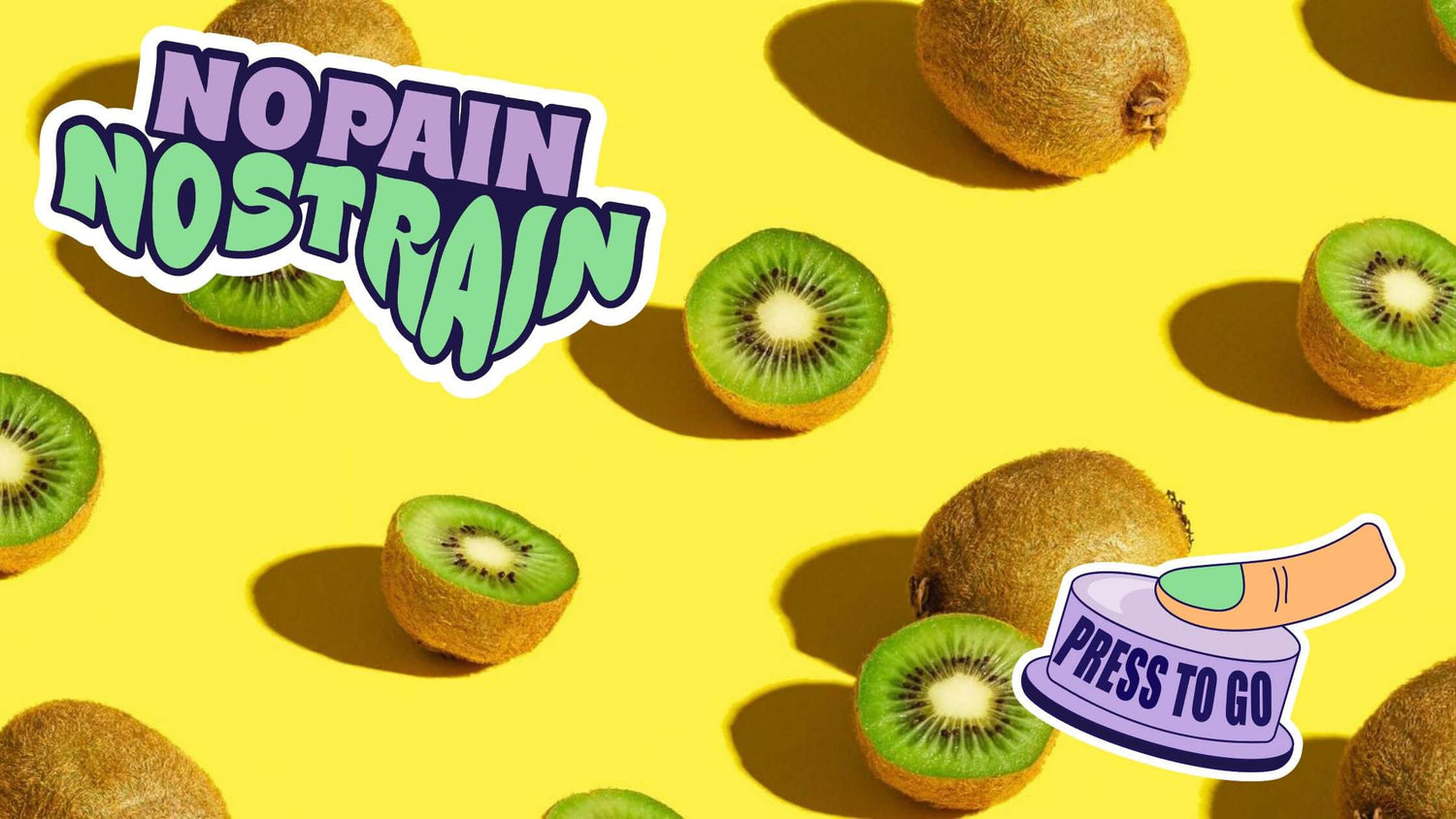Fibre is an essential dietary component for healthy digestion. It occurs in two main forms - soluble and insoluble. Inadequate intake of fibre, particularly insoluble fibre, can lead to issues with digestion.
More specifically, low dietary fibre intake can lead to constipation, a digestive issue that impacts millions of people across the world. Constipation can lead to further digestive symptoms, such as bloating, abdominal discomfort, and abdominal pains.
Although constipation is a temporary problem for many, others experience it regularly. Ongoing constipation can be difficult to cope with and may start to affect the person’s quality of life.
Thankfully, something as simple as consuming more dietary fibre can keep constipation at bay and promote healthy digestion. Let’s delve a little deeper into the benefits of consuming fibre for tackling constipation. I will cover what constipation is, what fibre is, and how the latter improves the former. I'll also give some top tips for relieving constipation naturally.
What is Constipation?
Constipation is a digestive symptom that can be either temporary or chronic (ongoing). It occurs when more water than usual is reabsorbed from the stool, whether because the body is dehydrated or the stool has been sitting in the colon for too long. This dries out the stool, making it difficult and painful to pass.
Identifying constipation can be difficult because everybody’s normal is different when it comes to toilet regularity. Some people go to the toilet every day, whereas others only go a few times a week. It’s not necessarily the number of times you go to the toilet that determines whether or not you’re constipated. Instead, it’s whether there has been a significant reduction in the number of bowel movements you’re having from usual.
Constipation results from a range of different things, including:
- Changes in dietary intake, specifically choosing a lower fibre diet or consuming more salty foods that cause you to become dehydrated
- Not drinking enough fluids to stay hydrated
- Being sedentary, such as when you’re travelling or going on holiday
- Taking certain medications, such as antihypertensives, antidepressants, antacids, iron supplements, and opioid pain relievers
- Digestive disorders, such as irritable bowel syndrome (IBS) and inflammatory bowel disease (IBD, Crohn’s and ulcerative colitis)
- Hormonal changes, such as those that occur in the days leading up to a woman’s monthly period or those that occur during pregnancy and menopause
What is Fibre?
Fibre, sometimes also called roughage, is a type of carbohydrate that the body can't digest that is found in plants. The body doesn’t digest and absorb fibre in the same way as it does with other nutrients like macronutrients and micronutrients. Instead, fibre passes through the digestive system intact.
Although it doesn’t necessarily provide nutrition in the same way as foods that are absorbed in the lower gastrointestinal tract fibre plays essential roles in digestion. Without it, you would experience many digestive symptoms, one of which would be ongoing constipation.
There are two main types of dietary fibre - soluble and insoluble. Soluble fibre dissolves in water (hence its name). This type of fibre creates a gel substance in the digestive tract when it interacts with water. You can consume soluble fibre in oats, legumes, seeds, apples, citrus, fruits, carrots, and broccoli.
Soluble fibre helps regulate blood sugar levels by slowing down the absorption of sugar from the intestines to the bloodstream. It also binds cholesterol in the gut to prevent it from entering the bloodstream, which is beneficial for those with or without hypercholesterolaemia and can lower the risk of cardiovascular disease.
As its name suggests, insoluble fibre does not dissolve in water. Therefore, it passes through the digestive tract untouched and intact. You can find insoluble fibre in whole grains like bread, pasta, rice, and quinoa, as well as in nuts, seeds, and leafy green vegetables. If you eat the skinners on your fruits, you will also be getting some insoluble fibre.
Insoluble fibre is the key player when we are talking about constipation. As insoluble fibre helps to increase faecal mass (in other words, it adds bulk to your stool), it helps to promote regular bowel movements and prevent constipation. It acts as a natural laxative to speed up the passage of food through the digestive tract and lower constipation the risk of constipation and digestive disorders like diverticulosis and haemorrhoids.
How Does Fibre Improve Constipation?
I've already briefly mentioned how fibre is beneficial for digestion, but there's a lot more to it, so let's discuss how fibre improves constipation.
Dietary fibre, particularly insoluble fibre, helps to increase the weight of your stool. It bulks it up to stimulate a process known as peristalsis in the bowel, which refers to the contractions of the smooth muscles within the colon. Peristalsis helps to push food through the large intestines and out of your body into the toilet. It's the same physiological process that happens in your upper digestive tract, which pushes food from your mouth into your stomach.
With a regular intake of insoluble fibre, you can keep things moving down below and avoid constipation. Combining this with soluble fibre in your diet can also support your gut microbiota and improve your overall digestive health. Soluble fibre fuels the probiotic bacteria in your colon, enabling them to perform essential functions, such as vitamin production, short-chain fatty acid production, and immunity.
Other Tips to Relieve Constipation
Alongside consuming plenty of dietary fibre (both soluble and insoluble), there are lots of natural ways to minimise constipation risk. Here are some of my top tips for natural constipation relief.
Stay hydrated by drinking enough water
One of the most helpful habits to build into your routine to avoid constipation is drinking plenty of fluids. When you are hydrated, your body won’t feel obliged to absorb water from the colon in order to maintain fluid balance. As a result, your stool will retain enough water to remain soft and should pass easily through your lower gastrointestinal tract.
If you are somebody who forgets to drink water, I suggest keeping a bottle by your side during the day to remind you to take regular sips. You could also set reminders on your phone to alert you every hour or so to take a sip of water.
Keep moving throughout the day
Physical activity is essential for good overall health, and this includes good digestive health. When you are moving your body, it helps to get things moving through your digestive system and prevents a backup of ingested food.
In turn, physical activity can minimise constipation risk and ensure toilet regularity. Think of exercise as a natural laxative without needing to take any tablets or supplements!
Find a form of exercise that you enjoy and are motivated to continue for years to come and tackle constipation in the long term. This might be walking, running, weightlifting, sports, yoga, or swimming. Regardless of your chosen form of exercise, make sure to keep your body moving daily to support a healthy digestive system.
Reduce your salt intake
Salt (sodium) is essential for nerve function and fluid balance within the body. However, consuming too much dietary sodium can wreak havoc on your digestive system.
Too high levels of sodium can cause your kidneys to excrete more water, causing you to become dehydrated. Avoiding salty foods, such as takeaways, ready meals, and salted snacks can help to prevent excessive sodium consumption and the associated side effects.
I’m not saying that you can’t enjoy your favourite junk foods here! However, make sure to drink lots of water following salty meals and snacks to counteract the dehydrating effects of sodium.
Consume natural laxatives
There are lots of foods that act as natural laxatives and consuming more of these foods can alleviate constipation or prevent it from developing in the first place.
Some of the many foods that possess natural laxative effects include:
- Whole grains, including oatmeal
- Apples
- Bananas
- Garlic
- Onions
- Leafy green vegetables
- Nuts
- Dried fruit
Think of some exciting ways to incorporate these foods into your cooking or add them to your snacks. Just a few small changes to your diet and the inclusion of a couple of these beneficial foods can make all the difference when it comes to your toilet regularity.
Try relaxation techniques
Stress and anxiety can contribute to constipation and bloating. Practising relaxation techniques can, therefore, be beneficial in relieving constipation by lowering your cortisol levels and promoting a more relaxed mindset.
There are lots of simple techniques you can try to relax your mind, including deep breathing, meditation, yoga, or walking in nature. Consider the things that make you feel relaxed, and set aside some time each day to calm your mind.
Get into a routine to practice good toilet habits
The human body likes routine. Getting into a toilet routine can promote regularity and reduce the risk of constipation. Consider the best time of the day for you to relax at home and encourage a bowel movement. Make sure you won’t get disrupted or distracted during this time of the day to maintain good toilet habits and naturally support your digestive system.
When you’re on the toilet, practice good behaviours like keeping your spine neutral, leaning slightly forward, and raising your feet on a small stool to open your bowels more easily.
Take a probiotic supplement
Probiotics can be a great addition to your usual diet when you’re trying to minimise the risk of constipation. Probiotic bacteria, such as Lactobacillus, Bifidobacterium, and Enterococcus are found naturally in the gut in their billions, but taking a probiotic supplement can help boost their numbers and promote better digestion.
Probiotic bacteria produce vitamins and short-chain fatty acids as they ferment ingested foods. As they can aid the metabolism of food in the colon, probiotics prevent poor gut motility and the associated symptoms of bloating, constipation, and abdominal discomfort.
Our supplement, A Dose For Bloating, contains one billion probiotic bacteria, six digestive enzymes, and six plant extracts to provide a remedy for digestive issues. Taking one or two capsules a day can promote regularity and eliminate constipation and bloating.
If you’ve got any questions about our supplement, get in touch so we can answer them and help you feel confident in supplementing with probiotics.









